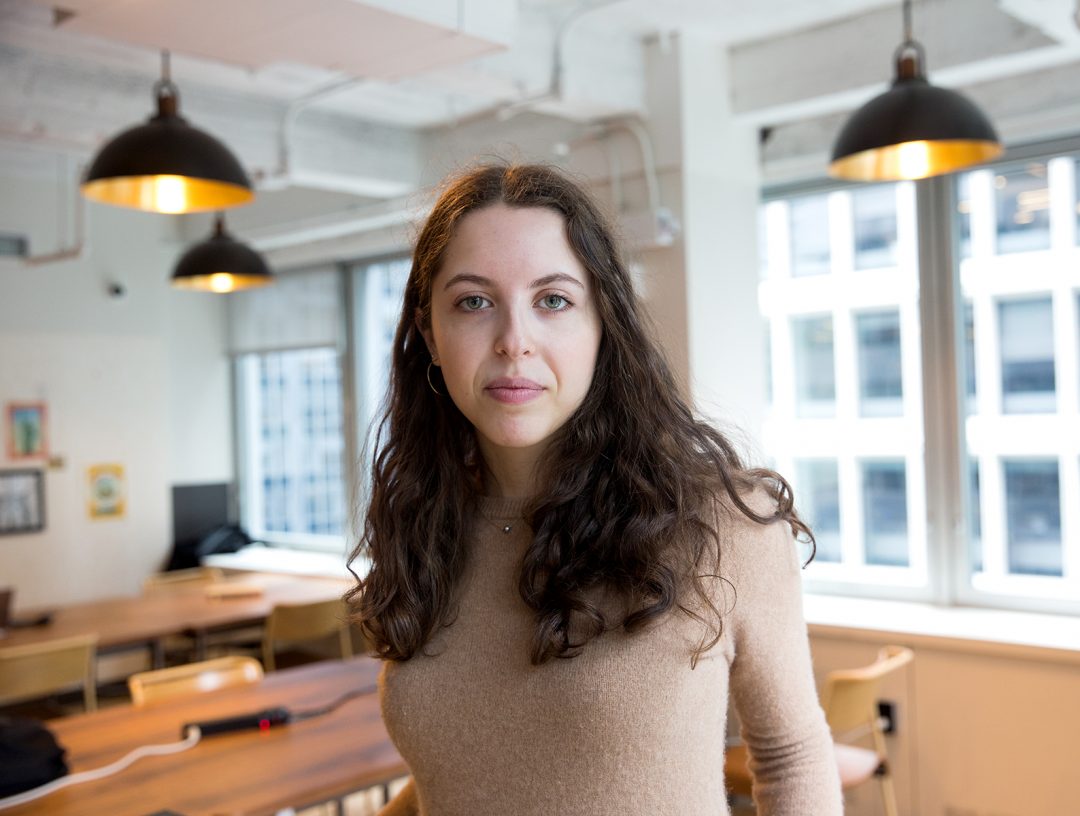 "As a kid I read a lot of books and I noticed how male or female protagonists took different life paths. I learned there were acceptable paths based on gender. Sometimes novels give you a societal message, like Pride and Prejudice and sometimes the message is subtler. My interest in psychology is related to all the reading I've done and the questions I have about how someone's background influences what kind of character they become." - Sarah Wilen is a sociaspatial analyst at PLASTARC.
"As a kid I read a lot of books and I noticed how male or female protagonists took different life paths. I learned there were acceptable paths based on gender. Sometimes novels give you a societal message, like Pride and Prejudice and sometimes the message is subtler. My interest in psychology is related to all the reading I've done and the questions I have about how someone's background influences what kind of character they become." - Sarah Wilen is a sociaspatial analyst at PLASTARC.
Angela Batista
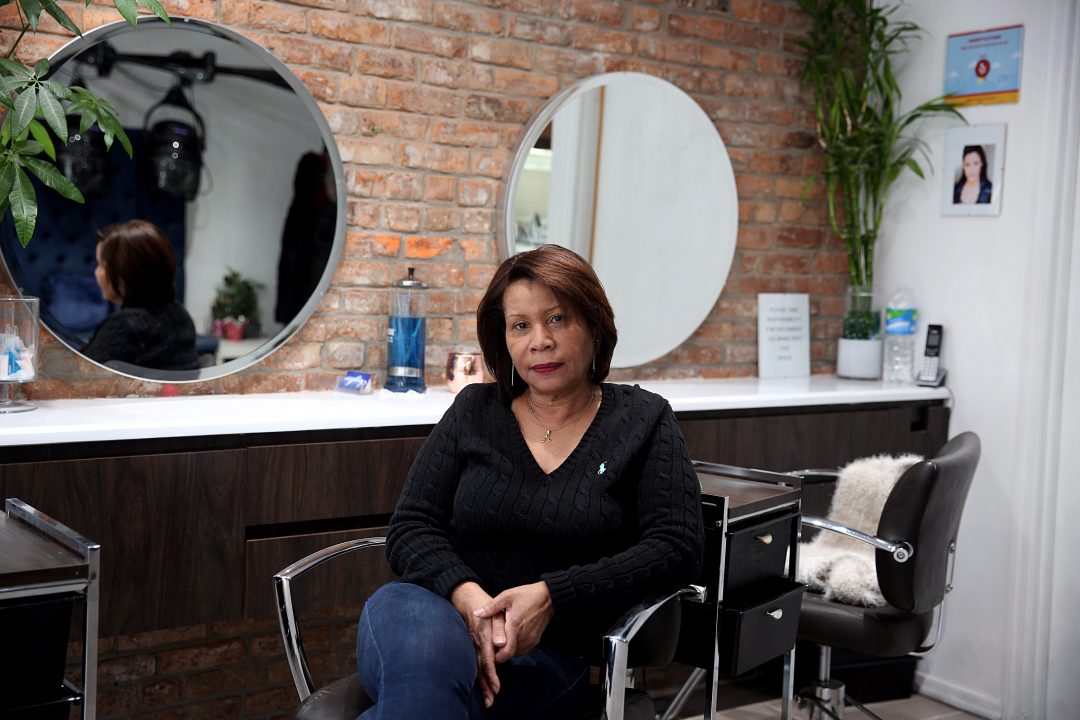 "Becoming a mother changes your life and everything is different. I was 17 when I had my first child. I have three children, who are all professionals and I have five grandchildren." - Angela Batista is a hairstylist at Sexy Flow.
"Becoming a mother changes your life and everything is different. I was 17 when I had my first child. I have three children, who are all professionals and I have five grandchildren." - Angela Batista is a hairstylist at Sexy Flow.
Lori Heino-Royer
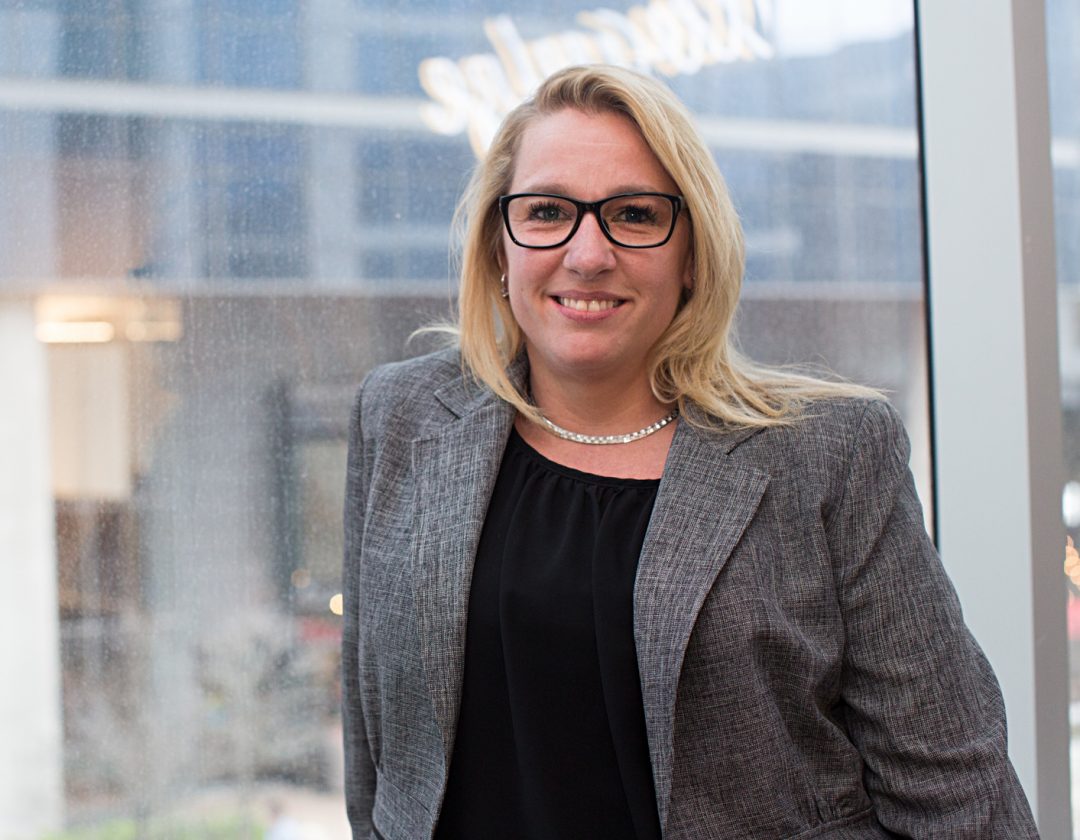 "When I was 22 I was told by my employer that I had the highest paying job that I'd ever have as a woman at that company. That pushed me to go back to school and earn a degree which led me to where I am today."- Lori Heino-Royer is the Director of Business Development at Daimler Trucks North America.
"When I was 22 I was told by my employer that I had the highest paying job that I'd ever have as a woman at that company. That pushed me to go back to school and earn a degree which led me to where I am today."- Lori Heino-Royer is the Director of Business Development at Daimler Trucks North America.
Topeka K. Sam
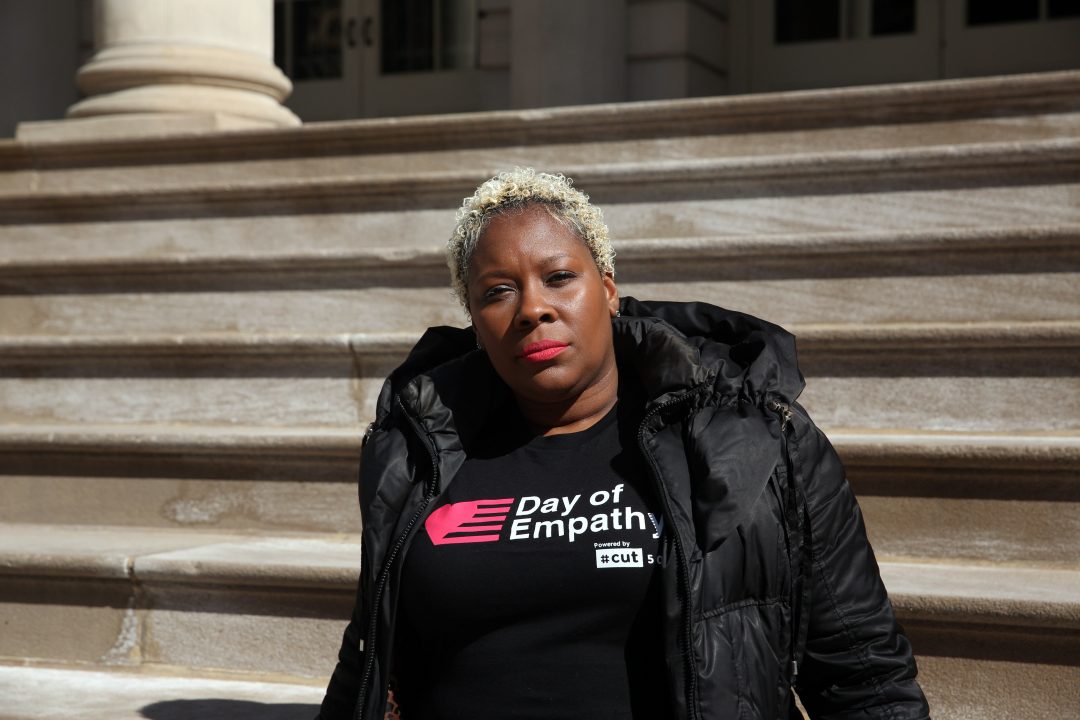 "I think the ability to discern is a gift that is given to most women. In the Bible wisdom is referred to as a woman. I wouldn't be as wise if I weren't a woman. I call this discernment God speaking to us. This ability has empowered me to fight for incarcerated, formerly incarcerated and marginalized women and girls." - Topeka K. Sam is the founder and executive director of The Ladies of Hope Ministries. The mission of The LOHM is to help disenfranchised & marginalized women transition back into society through education, spiritual empowerment, entrepreneurship & advocacy. She is also the c0- founder of Hope House. Topeka served 3.5 years in federal prison and today is her birthday as well as the 2018 #dayofempathy.
"I think the ability to discern is a gift that is given to most women. In the Bible wisdom is referred to as a woman. I wouldn't be as wise if I weren't a woman. I call this discernment God speaking to us. This ability has empowered me to fight for incarcerated, formerly incarcerated and marginalized women and girls." - Topeka K. Sam is the founder and executive director of The Ladies of Hope Ministries. The mission of The LOHM is to help disenfranchised & marginalized women transition back into society through education, spiritual empowerment, entrepreneurship & advocacy. She is also the c0- founder of Hope House. Topeka served 3.5 years in federal prison and today is her birthday as well as the 2018 #dayofempathy.
Sylvie Degiez
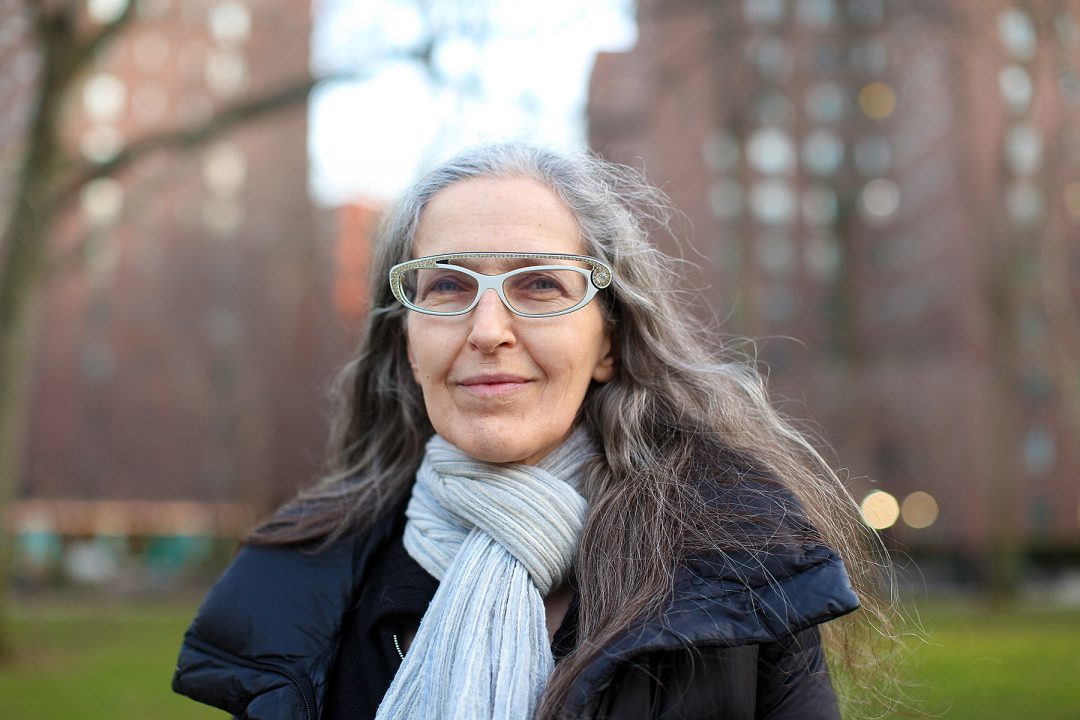 "Everything would have been different if I weren't a woman, especially where I come from in rural Switzerland. It was very gender distinct, so much so that I never even heard about homosexuality until very late in life. My mother said she was a feminist but there was a big discrepancy between her discourse and her actions. She was the center pole of the family and she worked hard and earned a better living than my father but there was always a deference to the males in the family. That is just the way it was there. In my village, divorced women were often looked down on. Even if it was the man who had a lover and broke up the marriage, it was the divorced woman who would have the lower social position. But my mother was always kind to divorced women, well really to all women. She loved women. " - Sylvie Degiez is originally from Switzerland and is a composer/musician/educator.
"Everything would have been different if I weren't a woman, especially where I come from in rural Switzerland. It was very gender distinct, so much so that I never even heard about homosexuality until very late in life. My mother said she was a feminist but there was a big discrepancy between her discourse and her actions. She was the center pole of the family and she worked hard and earned a better living than my father but there was always a deference to the males in the family. That is just the way it was there. In my village, divorced women were often looked down on. Even if it was the man who had a lover and broke up the marriage, it was the divorced woman who would have the lower social position. But my mother was always kind to divorced women, well really to all women. She loved women. " - Sylvie Degiez is originally from Switzerland and is a composer/musician/educator.
Carolina Rojas
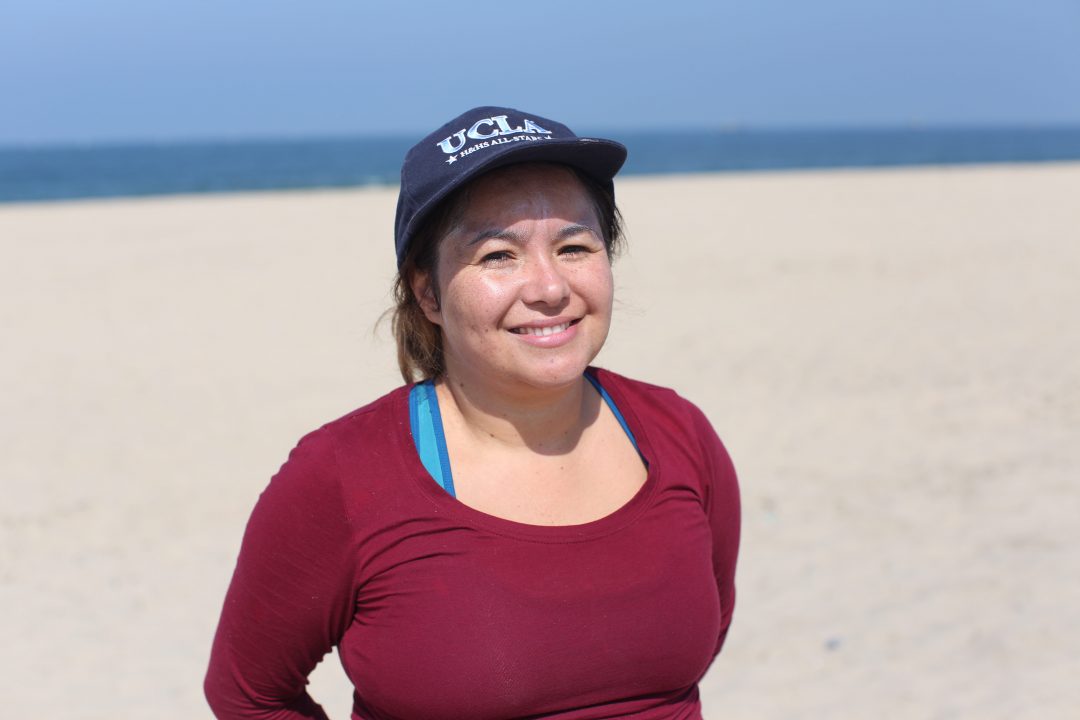 "I have two boys. Going through the pain of labor and then forgetting the pain once you hold the baby and then an overwhelming feeling you are responsible for a person. I constantly question whether I am doing this right." - Carolina Rojas lives in Los Angeles and is the mother of two boys.
"I have two boys. Going through the pain of labor and then forgetting the pain once you hold the baby and then an overwhelming feeling you are responsible for a person. I constantly question whether I am doing this right." - Carolina Rojas lives in Los Angeles and is the mother of two boys.
Chloe Siegman
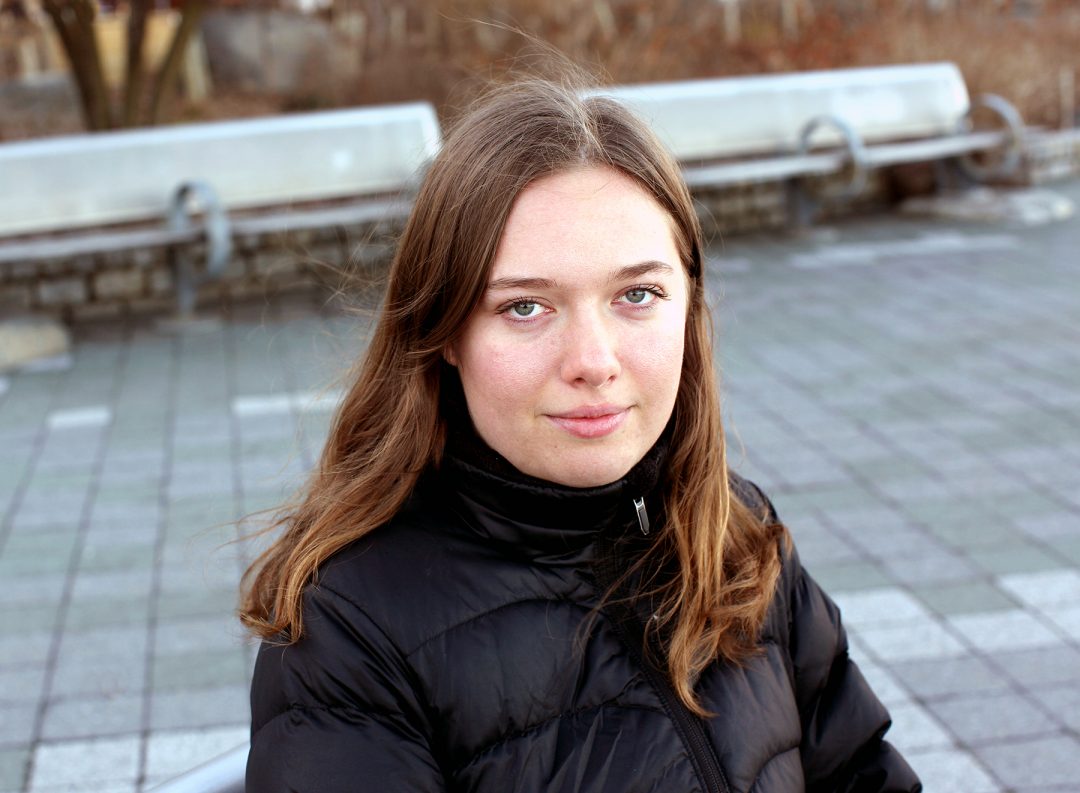 "Everything I I have experienced I have experienced in a certain way because I am a woman. The way I connect with people would be very different if I weren't female. I feel there is a learned behavior that is common in women. It involves listening and reflecting in a way that I don't see in my male presenting friends. I don't think it is a behavior that can't be learned by them, but me and my female friends have practiced more. This way of communicating leads me to see a lot of beauty in other people and opens up a depth of connection that is extremely useful." - Chloe Siegman is a theater arts major at Boston University.
"Everything I I have experienced I have experienced in a certain way because I am a woman. The way I connect with people would be very different if I weren't female. I feel there is a learned behavior that is common in women. It involves listening and reflecting in a way that I don't see in my male presenting friends. I don't think it is a behavior that can't be learned by them, but me and my female friends have practiced more. This way of communicating leads me to see a lot of beauty in other people and opens up a depth of connection that is extremely useful." - Chloe Siegman is a theater arts major at Boston University.
Melissa Tomback
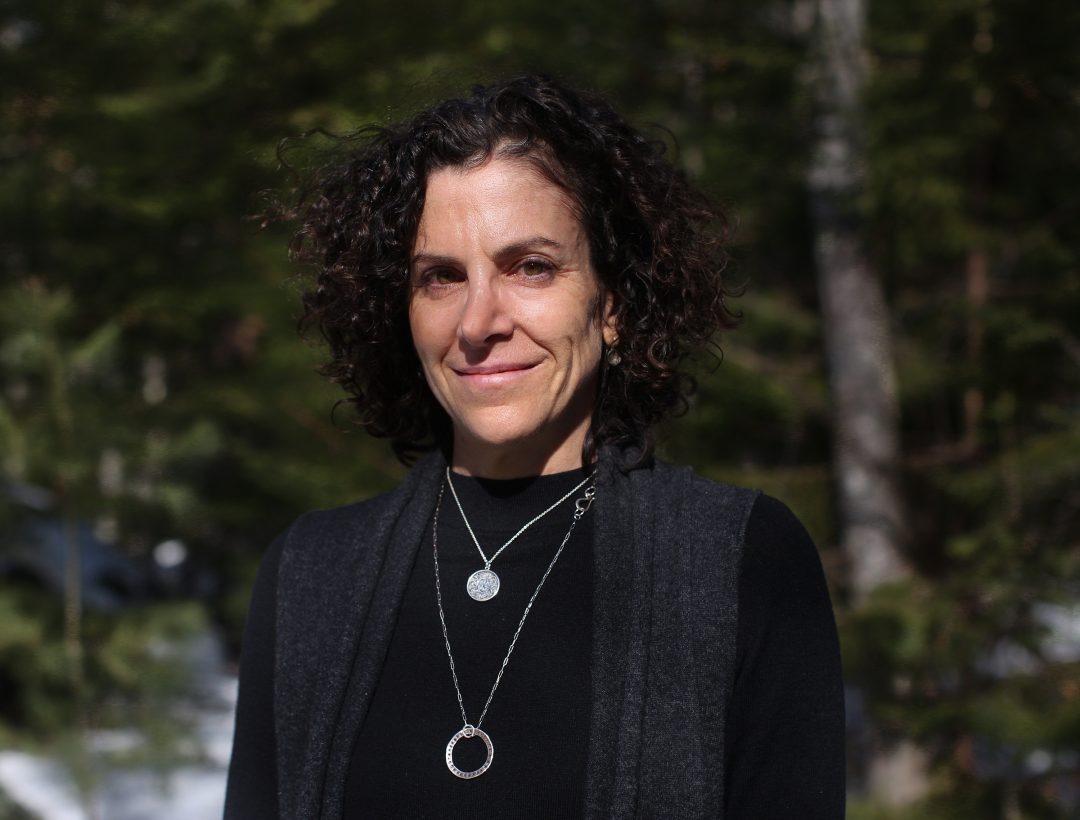 "I gave birth to my younger child, Jacob in my home and that was so empowering. It made me feel like I could do anything. In contrast to my first pregnancy and my daughter's birth, where I had so much doubt about becoming a new mother and read books and got lots of advice. Also, after she was born I had postpartum depression. With the second pregnancy, I realized I had the intuition to deliver him and raise him myself. We had a family bed and I was just calmer, not as anxious." - Melissa Tomback is a mother, lawyer, photographer and doula.
"I gave birth to my younger child, Jacob in my home and that was so empowering. It made me feel like I could do anything. In contrast to my first pregnancy and my daughter's birth, where I had so much doubt about becoming a new mother and read books and got lots of advice. Also, after she was born I had postpartum depression. With the second pregnancy, I realized I had the intuition to deliver him and raise him myself. We had a family bed and I was just calmer, not as anxious." - Melissa Tomback is a mother, lawyer, photographer and doula.
AJ Kinney
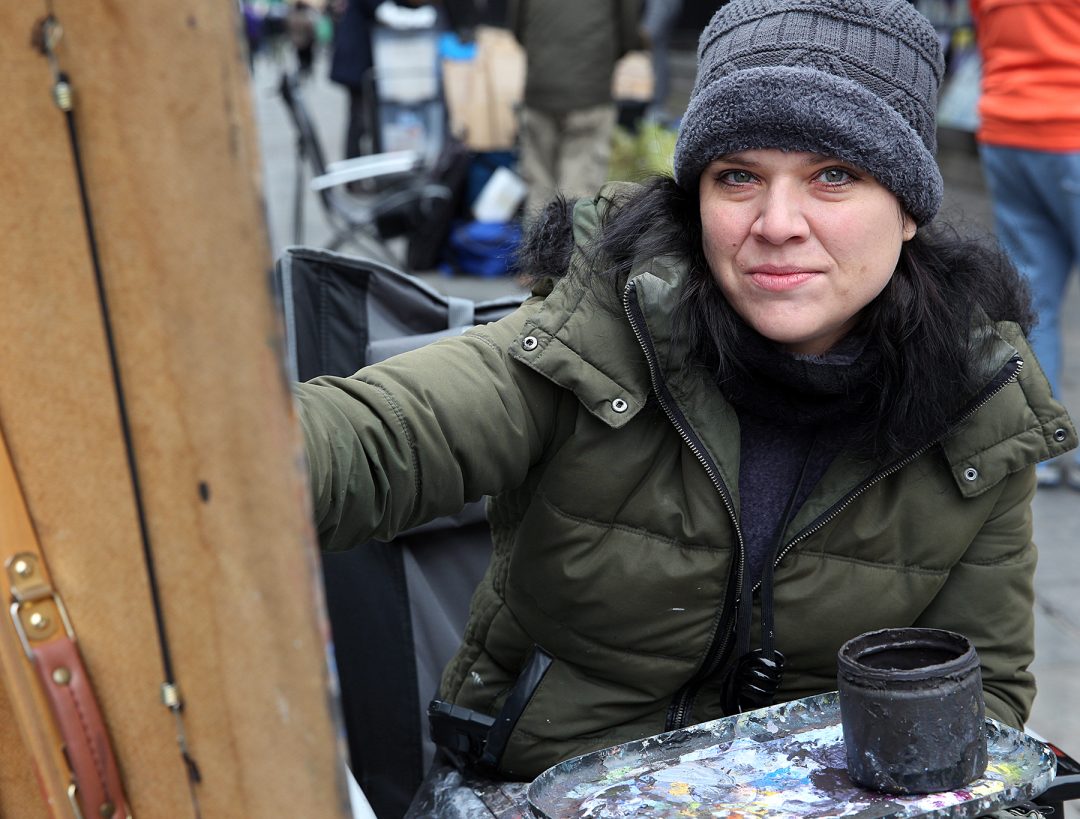 "My own choice of my name as a professional was to keep it gender neutral. Our world is almost pushing us to reflect on gender and see that it does impact everything. When I was at school at the Chicago Art Institute there was this male student who wanted to explore what it was to be a female artist so he painted only flowers. It was ridiculous, does it really need to be that obvious? People come up to me while I am working and ask, "Did you do that all by yourself?" I would never have to have my basic skillset questioned if I didn't happen to be born a woman." - AJ Kinney is a painter living in New Orleans.
"My own choice of my name as a professional was to keep it gender neutral. Our world is almost pushing us to reflect on gender and see that it does impact everything. When I was at school at the Chicago Art Institute there was this male student who wanted to explore what it was to be a female artist so he painted only flowers. It was ridiculous, does it really need to be that obvious? People come up to me while I am working and ask, "Did you do that all by yourself?" I would never have to have my basic skillset questioned if I didn't happen to be born a woman." - AJ Kinney is a painter living in New Orleans.
Omary Carreo
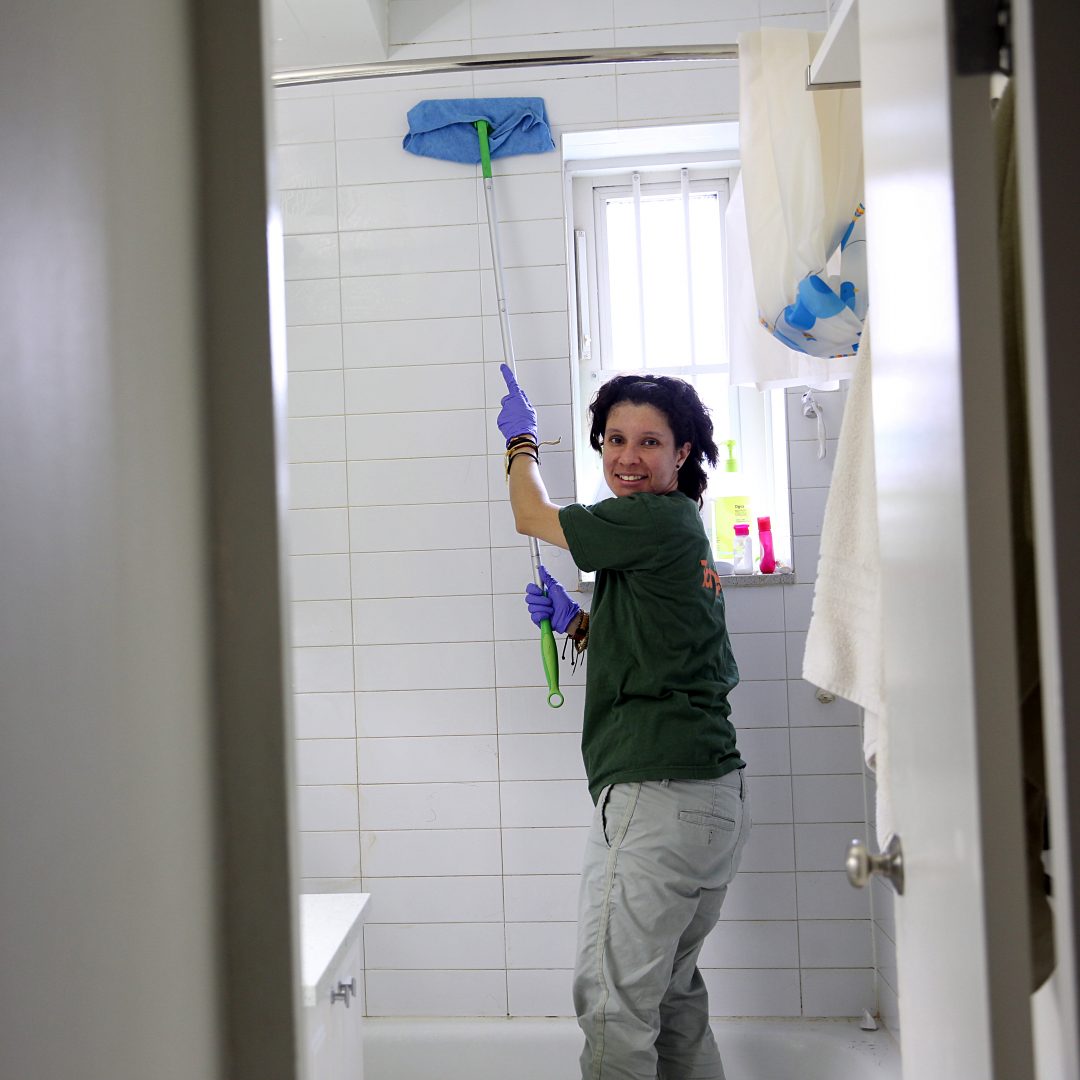 "Coming to this country ten years ago made my life. Being here opened up my mind to what it means to be a gay person. When I got my NYC city card they asked me whether I wanted to register as a woman, a man, both or neither. I said, "What? Wow! This is the country that I needed." In my country, Columbia, I couldn't come out as being a gay person. Being here gave me the opportunity to create my business with my wife. The small business center in NYC helped us get through the legal parts of setting up our business and helped us with marketing." Omary Carreo is the c0-owner of Tangerine Cleaning Service.
"Coming to this country ten years ago made my life. Being here opened up my mind to what it means to be a gay person. When I got my NYC city card they asked me whether I wanted to register as a woman, a man, both or neither. I said, "What? Wow! This is the country that I needed." In my country, Columbia, I couldn't come out as being a gay person. Being here gave me the opportunity to create my business with my wife. The small business center in NYC helped us get through the legal parts of setting up our business and helped us with marketing." Omary Carreo is the c0-owner of Tangerine Cleaning Service.
Kalin Angelica Flores
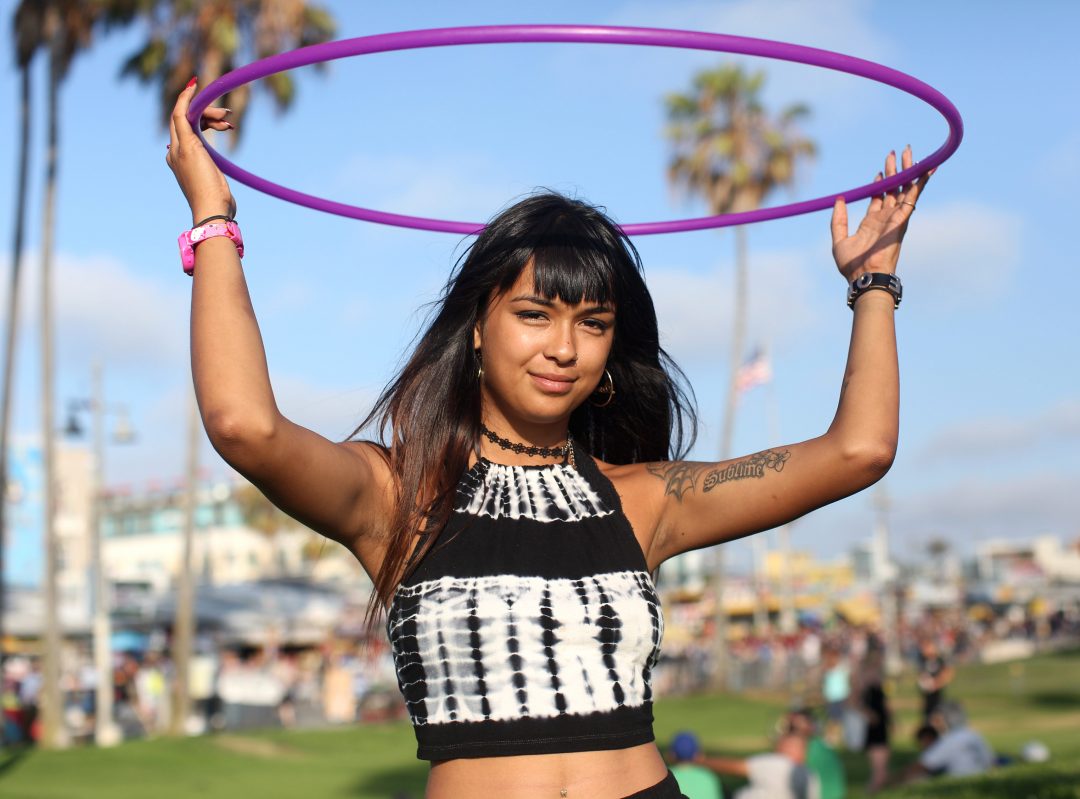 "Being a woman allowed me to learn to love myself and others the way I do. I feel like I got a lot of resistance from other people about how I should love myself and love other people, but I was right all along." Kalin Angelica Flores lives in Los Angeles.
"Being a woman allowed me to learn to love myself and others the way I do. I feel like I got a lot of resistance from other people about how I should love myself and love other people, but I was right all along." Kalin Angelica Flores lives in Los Angeles.
Danielle Gentile
 "I don't often think I am taken seriously in the workplace because I am a woman. I work in management and I find that men who are older than me do not like me delegating to them." - Danielle Gentile #LosAngeles #Gatsby #womenwholead #damnrightIatetheapple
"I don't often think I am taken seriously in the workplace because I am a woman. I work in management and I find that men who are older than me do not like me delegating to them." - Danielle Gentile #LosAngeles #Gatsby #womenwholead #damnrightIatetheapple
Kara Kelty
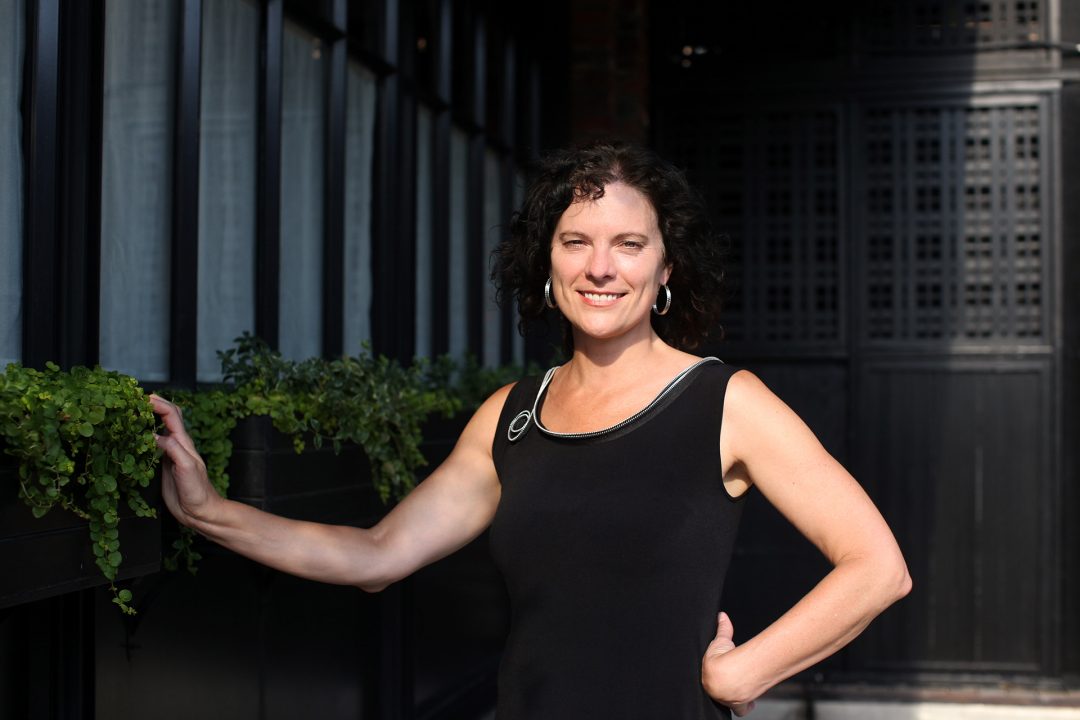 "When I was a Peace Corps Volunteer in the Philippines I was assigned to work together with a male Peace Corps Volunteer. At first the Filipino community would only listen to him. They would always ask him the questions first and they would be patient and try to derive meaning from what he was saying even though I spoke Waray, the local dialect, and better than he did. I realized the only way they were ever going to listen to me was if I spoke the language fluently - so I studied the dialect and once I could really speak their language, they took me seriously. The other Peace Corps Volunteer suddenly realized that I had really learned to speak Waray and wanted me to teach him. This experience made me realize that I had always been doing this, I had always been compensating in my life - working harder to be better prepared in order to be heard." Kara Kelty is the Manager for Candidate Ready Development at Leadership for Educational Equity.
"When I was a Peace Corps Volunteer in the Philippines I was assigned to work together with a male Peace Corps Volunteer. At first the Filipino community would only listen to him. They would always ask him the questions first and they would be patient and try to derive meaning from what he was saying even though I spoke Waray, the local dialect, and better than he did. I realized the only way they were ever going to listen to me was if I spoke the language fluently - so I studied the dialect and once I could really speak their language, they took me seriously. The other Peace Corps Volunteer suddenly realized that I had really learned to speak Waray and wanted me to teach him. This experience made me realize that I had always been doing this, I had always been compensating in my life - working harder to be better prepared in order to be heard." Kara Kelty is the Manager for Candidate Ready Development at Leadership for Educational Equity.
Cybele Tamulonis + Evie B.
 Cybele Tamulonis (Mother) - will be marching in NYC: "My earliest childhood memory is being pushed by my mother in a stroller through Central Park with the Bread and Puppet theater while we protested the Vietnam War. I can't believe it's 2017 and women's rights and education are being targeted. Really anything that pertains to equality will be targeted. We live in Blairstown, NJ, and this is a very conservative community. I am marching so that we can join other women and have our voices heard. I am going to ensure that Evie has full control over the rights of her body."
Evie B. age 13 (Daughter) - will be marching in NYC: "I am marching because Trump is only supporting white working males. I think he will make more hate in the world and is trying to kick people out of the country because they are different. He is possibly taking away hate crime legislation. I live in a town surrounded by very conservative Christian people. It's very stressful trying to figure out who I am in this place. I don't feel safe to explore who I really am and who I want to be."
Cybele Tamulonis (Mother) - will be marching in NYC: "My earliest childhood memory is being pushed by my mother in a stroller through Central Park with the Bread and Puppet theater while we protested the Vietnam War. I can't believe it's 2017 and women's rights and education are being targeted. Really anything that pertains to equality will be targeted. We live in Blairstown, NJ, and this is a very conservative community. I am marching so that we can join other women and have our voices heard. I am going to ensure that Evie has full control over the rights of her body."
Evie B. age 13 (Daughter) - will be marching in NYC: "I am marching because Trump is only supporting white working males. I think he will make more hate in the world and is trying to kick people out of the country because they are different. He is possibly taking away hate crime legislation. I live in a town surrounded by very conservative Christian people. It's very stressful trying to figure out who I am in this place. I don't feel safe to explore who I really am and who I want to be."
Jacquie McArdle
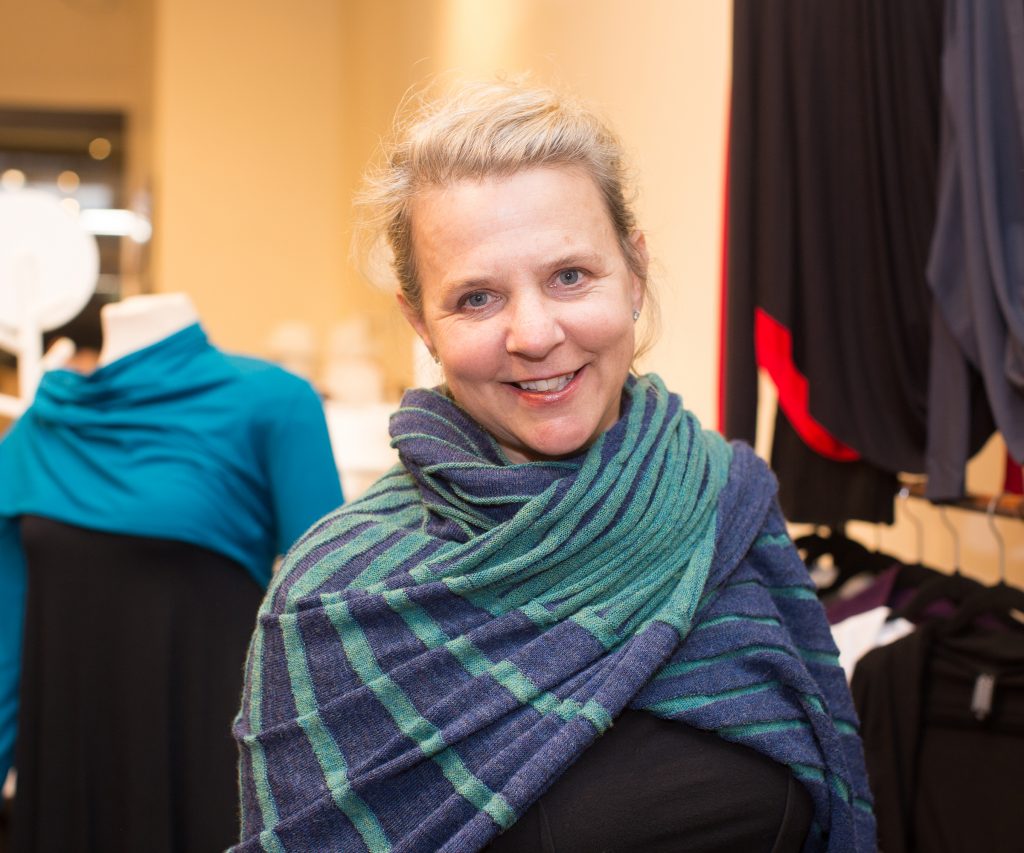 "My Dad told us we could do anything we wanted to do. My sister and I were too young to know that at that time, it wasn't really true. He raised us to think more like boys, to be independent, adventurous, and he believed in us. My sister and I took a cargo ship to Argentina when we were young, we traveled across the country alone. My Mother was aware of the danger of two girls traveling alone - and she worried about us, but my father believed we could do anything." - Jacquie McArdle is a fashion designer.
"My Dad told us we could do anything we wanted to do. My sister and I were too young to know that at that time, it wasn't really true. He raised us to think more like boys, to be independent, adventurous, and he believed in us. My sister and I took a cargo ship to Argentina when we were young, we traveled across the country alone. My Mother was aware of the danger of two girls traveling alone - and she worried about us, but my father believed we could do anything." - Jacquie McArdle is a fashion designer.
Laurence
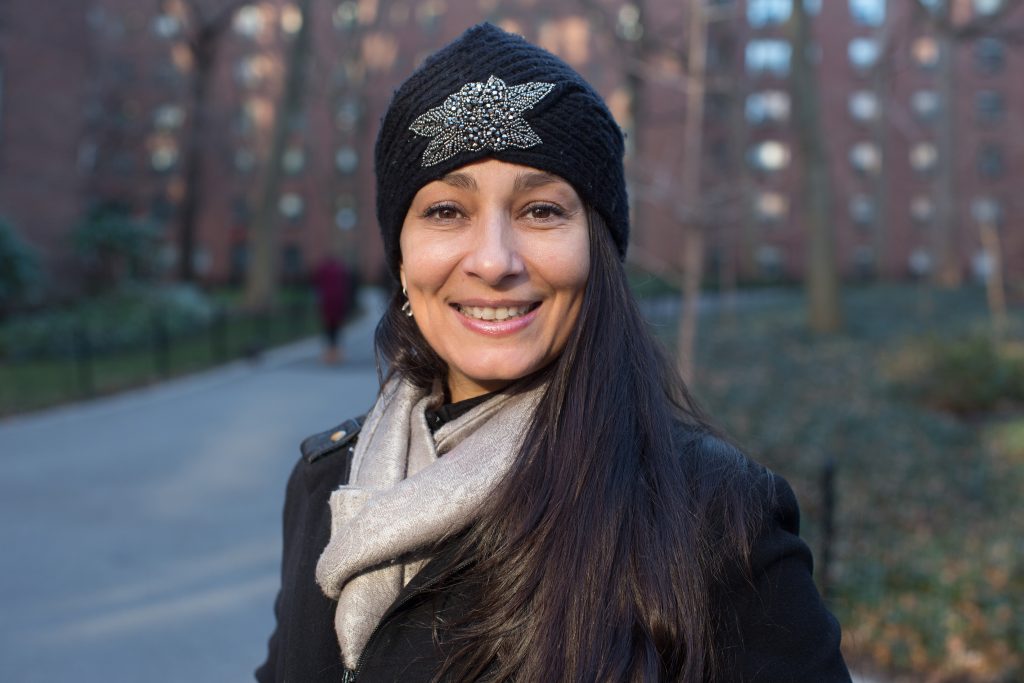 "I have always wanted to be a man and I have always been proud to be a woman. It seems simpler to be a man, you know, I have my dick and my knife and I am ready. But I always knew that there was certain power in being a woman. Women have the skills and capacity to multitask, analyze, to look at problems, measure, assess them - we can even look at anything and know what container it will fit in - we just know how to get shit done." - Laurence is a European actor and dancer.
"I have always wanted to be a man and I have always been proud to be a woman. It seems simpler to be a man, you know, I have my dick and my knife and I am ready. But I always knew that there was certain power in being a woman. Women have the skills and capacity to multitask, analyze, to look at problems, measure, assess them - we can even look at anything and know what container it will fit in - we just know how to get shit done." - Laurence is a European actor and dancer.
April Greene
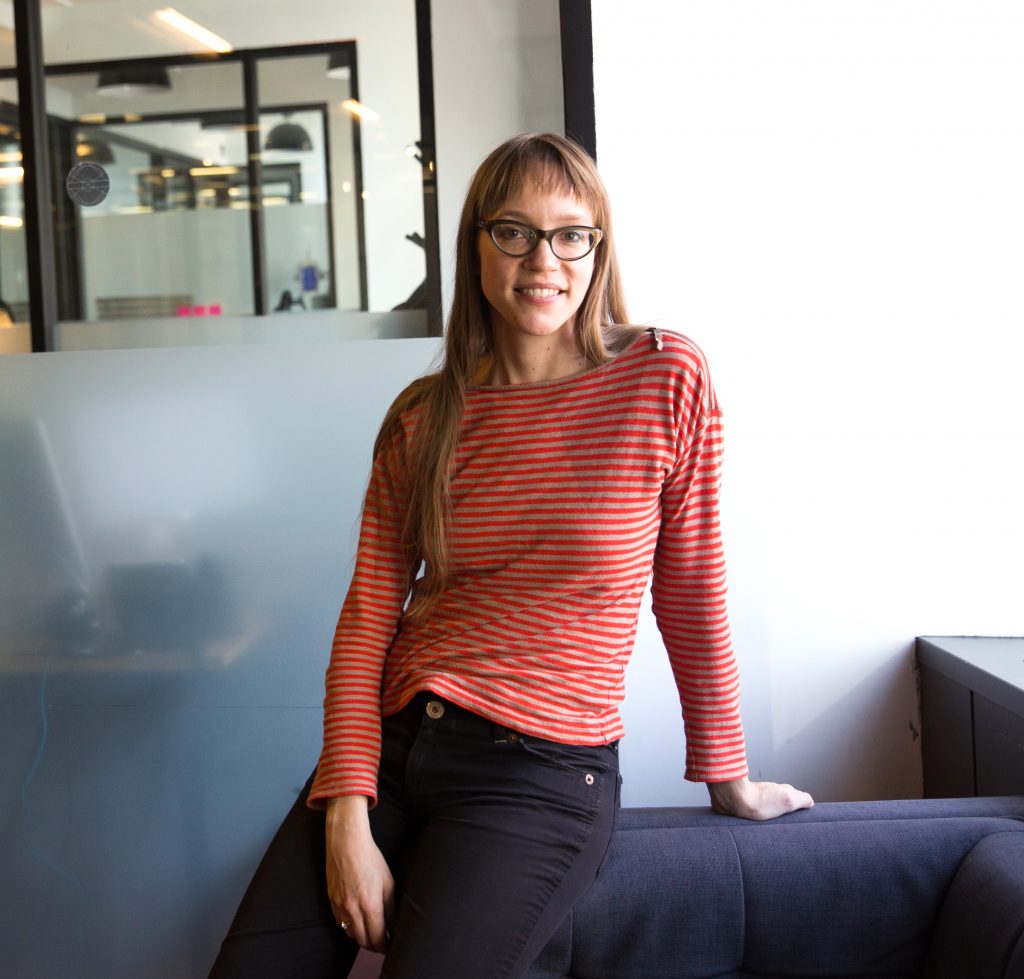 "My father was one of six boys. His mother kept having children because she wanted to have a girl, but she never did. Instead she dressed my father like a girl until he was 5 or 6 years old. Not sure if this is why he was so gentle. My mother was the more hand's on, no nonsense parent - she worked hard and I don't think she ever had a manicure in her life. I was less receptive to the idea of sexism and it wasn't until recently when a female friend, who is a welder, was telling me about how her boss was always trying to get her to smile or laugh at his stupid jokes to gain her approval. She just wanted to get her work done and didn't think it was her job to make the boss feel good or laugh at his jokes. I had a boss once who used to pass by my desk and tell us to smile - it was annoying." - April Greene is a writes about workplace strategy for PlastArc.
"My father was one of six boys. His mother kept having children because she wanted to have a girl, but she never did. Instead she dressed my father like a girl until he was 5 or 6 years old. Not sure if this is why he was so gentle. My mother was the more hand's on, no nonsense parent - she worked hard and I don't think she ever had a manicure in her life. I was less receptive to the idea of sexism and it wasn't until recently when a female friend, who is a welder, was telling me about how her boss was always trying to get her to smile or laugh at his stupid jokes to gain her approval. She just wanted to get her work done and didn't think it was her job to make the boss feel good or laugh at his jokes. I had a boss once who used to pass by my desk and tell us to smile - it was annoying." - April Greene is a writes about workplace strategy for PlastArc.
Susana Martinez
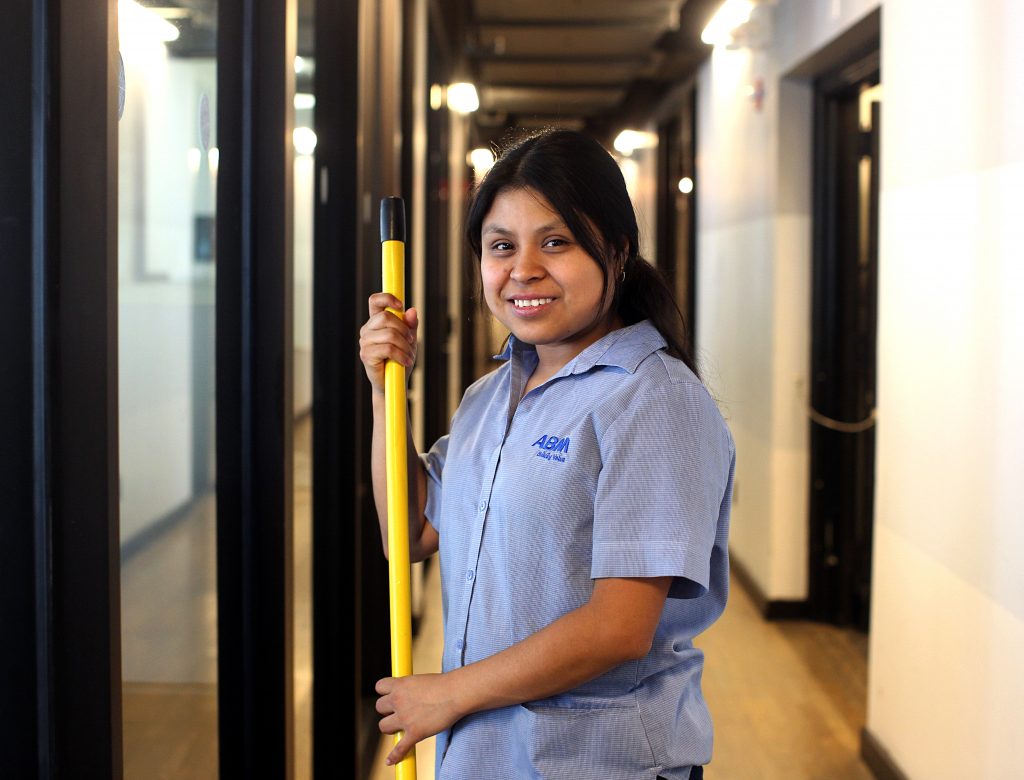 "I grew up in Mexico and my Father worked in construction. There's a lot of machismo in Mexico and my Father didn't think I could work like a man and didn't want me or my sisters to do construction work. He also didn't want me to play sports, except for tennis." - Susana Martinez is a part time student and works as a janitor.
"I grew up in Mexico and my Father worked in construction. There's a lot of machismo in Mexico and my Father didn't think I could work like a man and didn't want me or my sisters to do construction work. He also didn't want me to play sports, except for tennis." - Susana Martinez is a part time student and works as a janitor.
Tracy Mack Parker
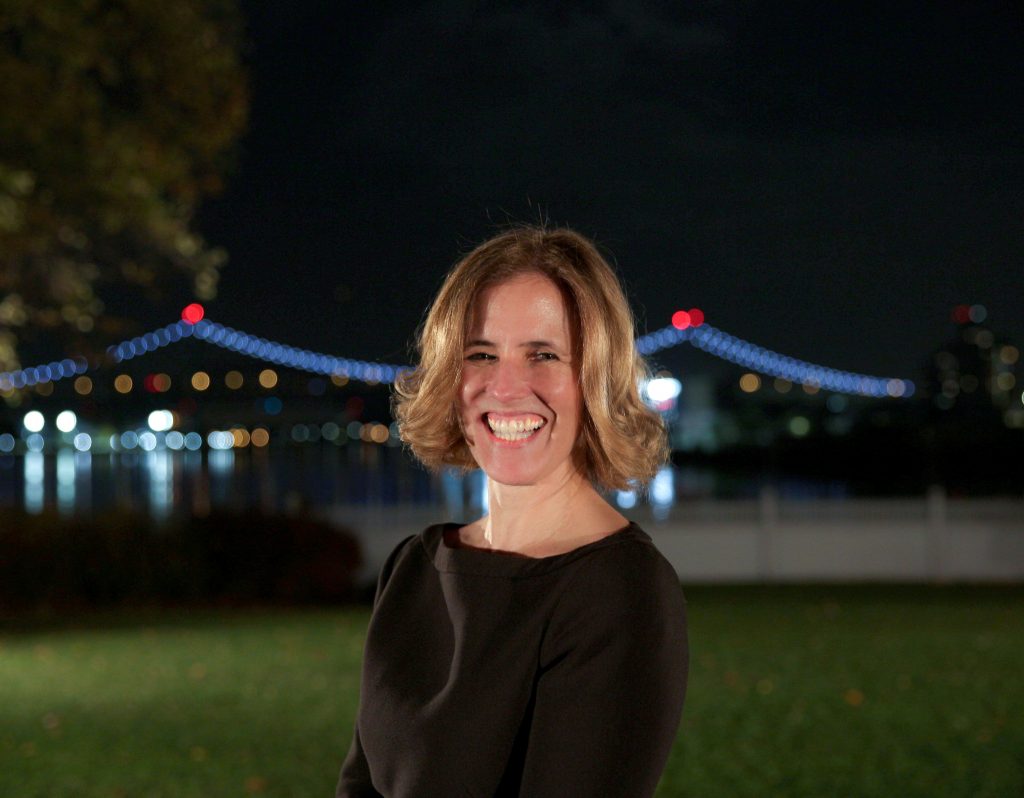 "Being a stepmother has given me the opportunity to learn from and teach my step-children how to set the bar high. To highlight for them the potential that woman have, as well as the challenges that we face. I want them to know they need to be all in, to be dedicated, because they already have what they need to change the world." - Tracy Mack Parker, CEO, The Philanthropy Workshop.
"Being a stepmother has given me the opportunity to learn from and teach my step-children how to set the bar high. To highlight for them the potential that woman have, as well as the challenges that we face. I want them to know they need to be all in, to be dedicated, because they already have what they need to change the world." - Tracy Mack Parker, CEO, The Philanthropy Workshop.
Briana Payton
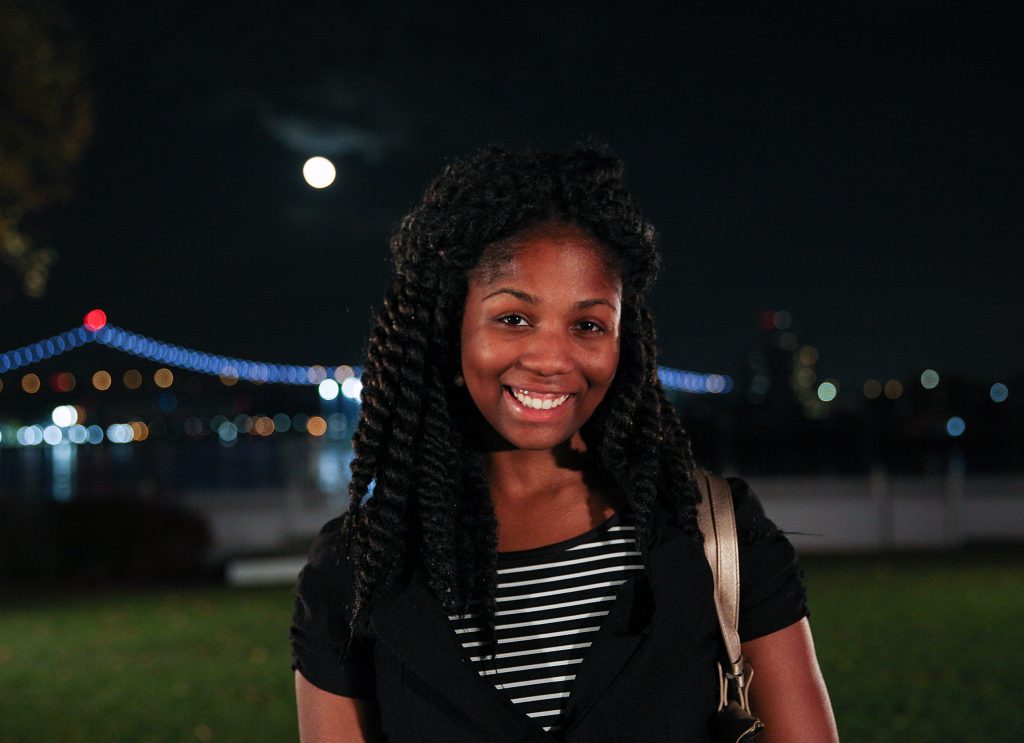 "My mother is my role model. And since I am a woman, I can model my life and my character based on her example." - Briana Payton is a Truman Scholar studying Sociology at Princeton University. Briana attended the Truman Foundation's 4oth Anniversary Party at Gracie Mansion earlier this month.
"My mother is my role model. And since I am a woman, I can model my life and my character based on her example." - Briana Payton is a Truman Scholar studying Sociology at Princeton University. Briana attended the Truman Foundation's 4oth Anniversary Party at Gracie Mansion earlier this month.